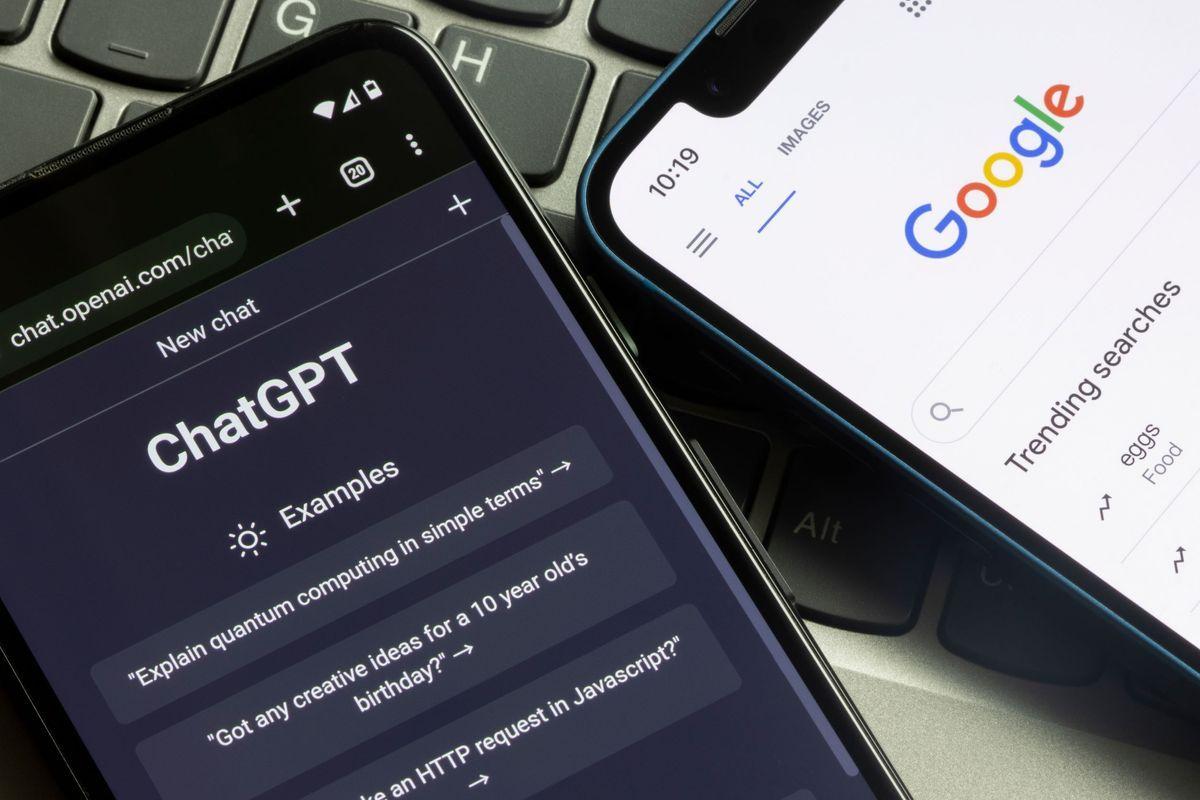OpenAI Seeks Search Capabilities for ChatGPT, Highlighting AI's Limitations in Google Antitrust Trial
2 Sources
2 Sources
[1]
ChatGPT Chief Calls Search Crucial for OpenAI in Google Trial
OpenAI's goals of building a "super assistant" app and reaching general artificial intelligence won't succeed without search technology but Google has declined to work with the startup, the head of its ChatGPT product testified Tuesday in the Google antitrust trial. OpenAI's Nick Turley said the company never intended to simply create a chatbot like its popular ChatGPT, and instead wanted to deliver a "super assistant" that can help users complete tasks. But the large language models that underlie the company's chatbot have inherent limitations because of a lack of recent information and their tendency to hallucinate, or invent false answers to questions when they don't know the answer. That's where search capability becomes essential, he said.
[2]
ChatGPT maker wants to buy Chrome from Google
The current trial is looking at remedies to curtail Google's dominance in online search, as the recent explosion in generative AI services such as ChatGPT has expanded the market. Newer AI models search the internet to improve results and reduce hallucination, which has been a problem from developers since chatbots started to become popular. Last year, OpenAI offered to do a deal with Google which would have integrated Google search results into ChatGPT, according to Mr Turley's testimony. But he says their offer was rejected. "We have no partnership with Google today," Mr Turley said, according to Reuters. OpenAI does however have a partnership with Microsoft, which makes the Bing search engine and Edge browser. Meanwhile, Google has its own suite of generative AI products such as Gemini - a direct competitor to ChatGPT. The trial is expected to last three weeks and other big tech companies - including Meta, Amazon and Apple - will be keeping a close eye on it, given they are also facing their own monopoly lawsuits from the DOJ. Separately, reports in the past week suggest OpenAI is looking into creating its own social network. The Verge reported the project is "still in early stages," but the company and its boss Sam Altman have privately been asking for feedback on a potential rival to X. OpenAI boss Sam Altman and X boss Elon Musk used to be business partners until a bitter falling-out over the direction of OpenAI a few years ago. X has its own AI tool Grok, which it has integrated into the social platform.
Share
Share
Copy Link
OpenAI's head of ChatGPT testifies in the Google antitrust trial, emphasizing the crucial role of search technology in AI development and revealing OpenAI's rejected partnership offer to Google.

OpenAI Emphasizes Search Importance in Google Antitrust Trial
In a significant development at the ongoing Google antitrust trial, Nick Turley, the head of OpenAI's ChatGPT product, testified about the critical role of search technology in artificial intelligence development. Turley's statements shed light on OpenAI's ambitious goals and the challenges faced by AI companies in their quest for more advanced and reliable systems
1
.OpenAI's Vision and Limitations
Turley revealed that OpenAI's aspirations extend far beyond creating a simple chatbot. The company aims to develop a "super assistant" capable of helping users complete various tasks. However, he acknowledged that the large language models powering ChatGPT have inherent limitations, including a lack of up-to-date information and a tendency to "hallucinate" or generate false answers when uncertain
1
.The Search for Search Capabilities
To address these limitations, OpenAI recognizes the crucial need for integrating search technology into their AI systems. Turley testified that the company's goals of building a super assistant and achieving general artificial intelligence cannot succeed without robust search capabilities
1
.Failed Partnership Attempt with Google
In a revealing disclosure, Turley stated that OpenAI had approached Google last year with a proposal to integrate Google's search results into ChatGPT. However, this offer was rejected by Google, leaving OpenAI without a partnership with the search giant. "We have no partnership with Google today," Turley confirmed
2
.Competitive Landscape and Partnerships
While OpenAI's attempts to collaborate with Google were unsuccessful, the company has forged a partnership with Microsoft, which owns the Bing search engine and Edge browser. This alliance potentially gives OpenAI access to alternative search capabilities. Meanwhile, Google has developed its own suite of generative AI products, including Gemini, which directly competes with ChatGPT
2
.Related Stories
Implications for the AI Industry
The trial and Turley's testimony highlight the growing importance of search technology in the evolving AI landscape. As newer AI models increasingly rely on internet searches to improve results and reduce hallucinations, the integration of powerful search capabilities has become a critical factor in the development and effectiveness of AI assistants
2
.Broader Context of the Antitrust Trial
The Google antitrust trial, expected to last three weeks, is exploring potential remedies to address Google's dominance in online search. The recent surge in generative AI services has expanded the market, attracting attention from other tech giants like Meta, Amazon, and Apple, who are closely monitoring the proceedings as they face their own monopoly lawsuits from the Department of Justice
2
.References
Summarized by
Navi
Related Stories
Recent Highlights
1
ByteDance's Seedance 2.0 AI video generator triggers copyright infringement battle with Hollywood
Policy and Regulation

2
Demis Hassabis predicts AGI in 5-8 years, sees new golden era transforming medicine and science
Technology

3
Nvidia and Meta forge massive chip deal as computing power demands reshape AI infrastructure
Technology








